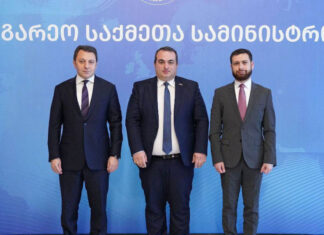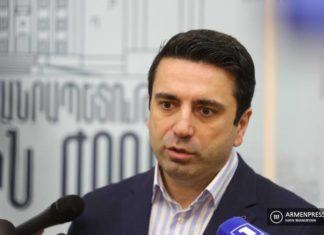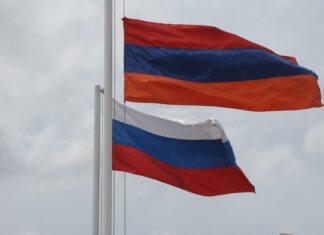On August 18-19, Russian President Vladimir Putin visited Azerbaijan for two days, coinciding with ongoing battles in the Kursk region of Russia after the Ukrainian army invaded Russia. The official Kremlin statement proclaimed that discussions will focus on strengthening allied and strategic relations between Azerbaijan and Russia. Putin also addressed the peace process between Azerbaijan and Armenia with President Ilham Aliyev, a critical issue for Armenia.
In general, relations between Azerbaijan and Russia have grown closer since the onset of the war in Ukraine. According to official sources, Russians are the top source of visitors to Azerbaijan, with over 600,000 arrivals in 2023. Russia accounts for two-thirds of Azerbaijan’s foreign trade turnover with CIS countries around 4.4bln USD annually. Furthermore, Russia-Azerbaijan relations are experiencing dynamic growth in all directions.
For Russia, selling gas to European Union countries through Baku became crucial after sanctions halted direct sales, forcing Moscow to rely on intermediaries. As Kiril Krivosheev argues, “Russian exports of oil and gas through Azerbaijan rose significantly after Russia lost access to much of the European market following the invasion of Ukraine. This means that in winter, Azerbaijan can export more of its own gas and meet internal demand with Russian gas.
“Similarly, Russian oil exports to Azerbaijan quadrupled in 2023. In both cases, the total volume of exports is not huge, but the war in Ukraine means it is of disproportionate significance for Moscow. Azerbaijan has also become an irreplaceable partner for Russia when it comes to transporting goods to and from Iran and the ports of the Persian Gulf. It’s no coincidence that transport along the North–South Corridor was one of the main points of discussion between Putin and Aliyev at their April 2023 meeting.”
So, Baku effectively has been supporting Moscow in this situation. Along the same lines, during the meeting with Aliyev in Baku, Putin mentioned that discussions can take place not only about energy but also about industrial cooperation, transportation, logistics, and light industry.
In recent years, a geopolitical shift influenced by Russia’s strategic plans was not properly recognized in Armenia, leading to the current circumstances. In February 2023, Azerbaijan and Russia signed a strategic alliance agreement, formally acknowledging Azerbaijan’s importance to Russia, a reality already recognized in practice. On the other hand, Yerevan ceased to obstruct the strategic development of Moscow-Baku relations. In fact, the landscape of Russian-Azerbaijani relations dramatically changed after the 2020 war, when Turkey’s ally Azerbaijan defeated Russia’s ally Armenia.









